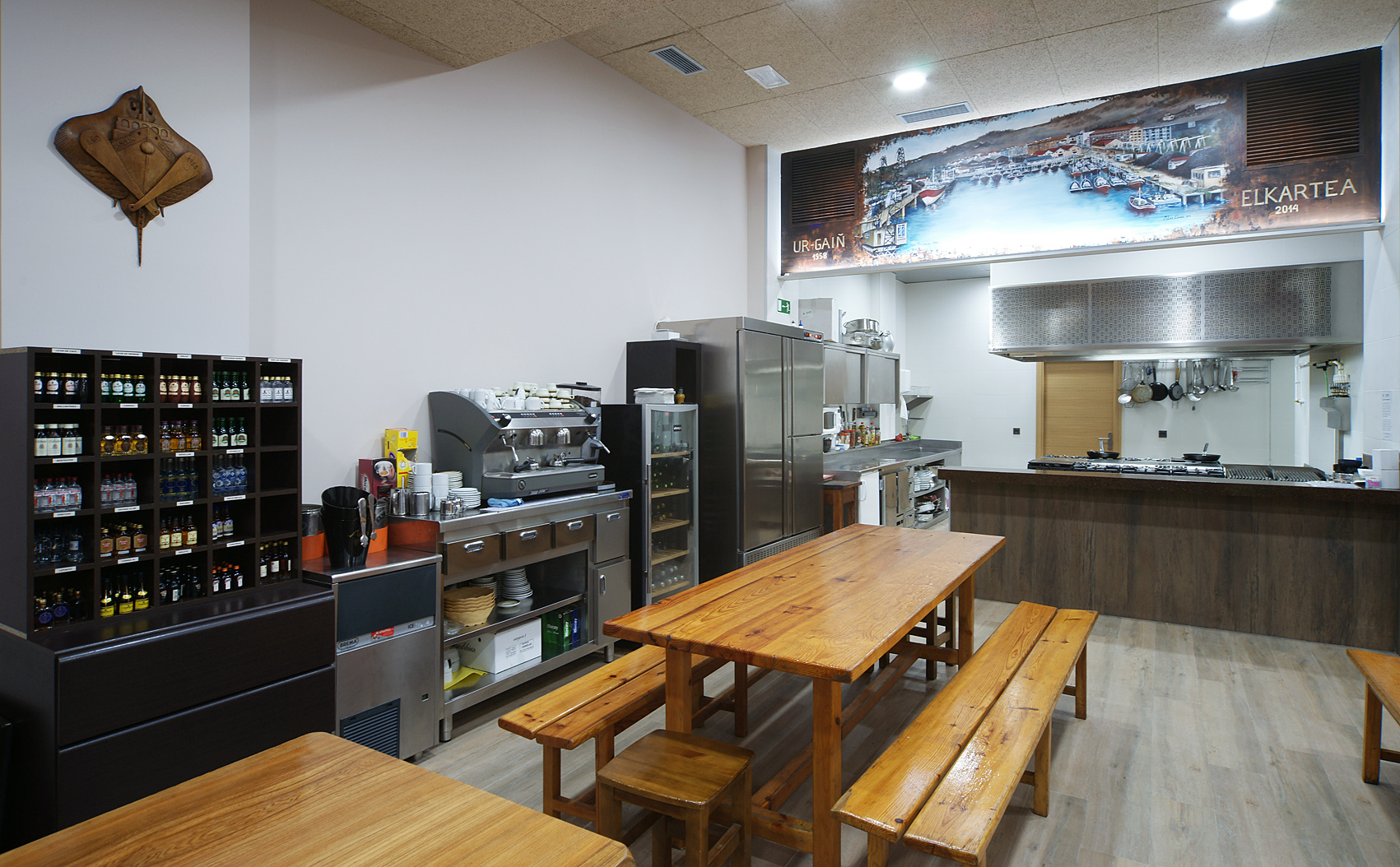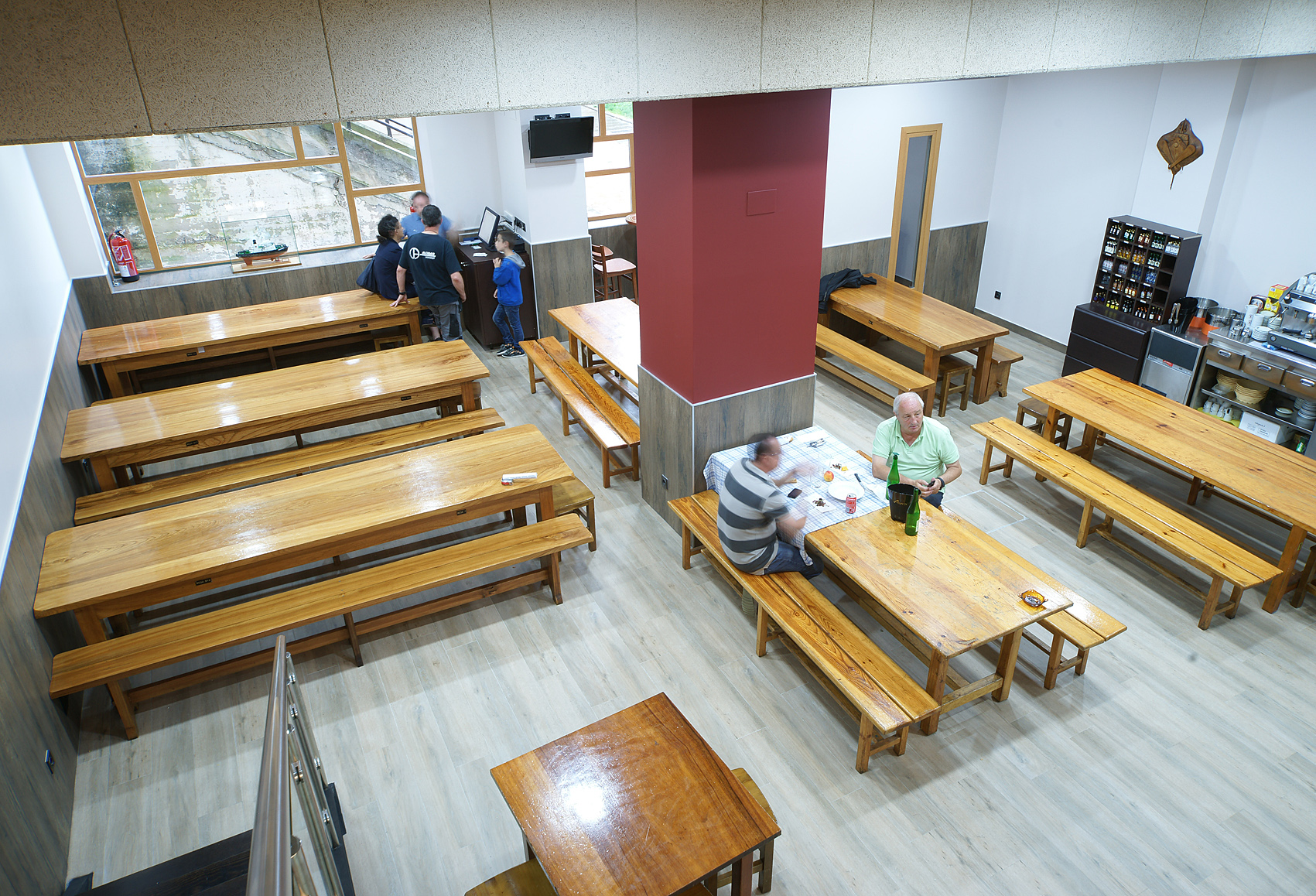Gastronomy is one of the main tourist attractions in the Basque Country and every year more and more tourists visit the Basque Country to enjoy the environment and its rich cuisine. As part of this tasty experience, many tourists take the opportunity to visit the Basque gastronomic societies, typical in the autonomous community, a visit that attracts attention thanks to the peculiar characteristics and the way in which the societies operate.
The first gastronomic societies were opened many centuries ago. In Euskadi there are 1554, the oldest of which, the Unión Artesana (Donostia), dates from 1870. In those days the public space belonged to men, although nowadays it is becoming more and more usual to find women in these traditionally male txokos.
We are now going to provide a brief summary of the characteristics and working of the gastronomic societies of the Basque Country. If you do not know or have never visited a society, a small user manual and guide to behaviour is provided here. This will help you to understand and enjoy the gastronomic culture of the Basque Country more closely.
Workings and characteristics of the gastronomic society
The basic essential function of a gastronomic society is to offer its members a place where they can cook their lunch or supper, either in the company of other members or with family/guests.
Industrial equipment, a key factor in the gastronomic society
There are three main zones in the gastronomic societies: industrial kitchen, dining room and storeroom-wine cellar.
The kitchens of the gastronomic societies, largely due to the renovations being carried out in the majority of these, are industrial kitchens and have a large set of professional equipment (cooking elements, industrial ovens, industrial refrigeration and dishwashers), essential items for ensuring the correct working of the txoko.
In the dining room, there are tables with long benches, which are always kept in the same position and location. In the majority of societies, these items are usually numbered to make it easier to keep them tidy. This allows members to book the places they need for their lunch or dinner in advance on the weekly list published on the notice board. This is where a plan of the premises with the correct numbering of the tables can always be found.
Lastly, the storeroom or wine cellar, where the drinks and basic food (condiments, tinned food, auxiliary material…) belonging to the gastronomic society is kept.

Management based on self-service and trust of all the members
The management of a gastronomic society is always based on self-service and trust. On arrival at the gastronomic society, the kitchen and dining room tasks are usually shared out among the guests. In addition, to ensure correct financial management, it is vital that each member notes down everything they have used from the society store cupboard and/or wine cellar, and then places the list in a mailbox or box designed for this purpose. The treasurer is responsible for checking the accounts and keeping control of the income.
As the system is based on mutual trust, it is logical that the entrance of new members is strictly controlled by the board of management of each society. They should be introduced by other members who give them a guarantee, and the right of veto is also available to prevent the entrance of any applicant.
The figure of “bodeguero” (wine keeper) must be added to the figures making up the society board of management (president, vice-president, members, treasurer). If the society is small, this task is normally taken on by the treasurer.
Lastly, it should be noted that in the majority of societies the membership list is full and applicants are added to the waiting list. Each society establishes the entrance regulations, usually based on the date of application. Some societies accept temporary members, who are to all effects and purposes ordinary members, but not key-holders. In other societies, when a vacancy arises due to the death of a member, preference is given to the son of the deceased. There are also honorary members, who are members by virtue of special merits with the society. The situation of retired members varies, from total exemption of payment of quotas, to a reduction or full payment.
Gastronomic societies are a fundamental part of the social life in the Basque Country and increasingly in many other autonomous communities. They have encouraged a gastronomic model that will last for many years in our society, pleasing to our palate and offering a place for social gathering.



Follow us